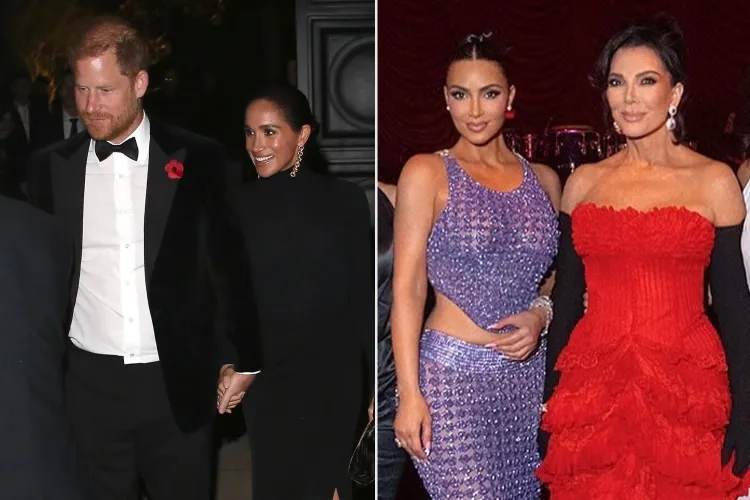Introduction: When Tradition Collides with the Bank Account
Nollywood is at its most potent when it tackles the seismic shifts rocking Nigerian society—the friction between deeply entrenched traditions and the unapologetic, sometimes dubious, power of new money. The two-hour-plus runtime of The Lion, starring Nollywood titans Osita Iheme, Chinedu Ikiedieze, and the formidable Yul Edochie, promises just such a dramatic clash. This film places a magnifying glass over a wealthy elite, Chief Kalisia, who believes his fortune buys him the right to dismantle the sacred authority of the reigning monarch and the King’s cabinet.
But is The Lion a masterwork of socio-political drama, or does it succumb to melodrama and familiar tropes? We dive deep into the narrative structure, the thematic subtext of ritualistic wealth, and the effectiveness of its central antagonist to deliver a comprehensive critical verdict. The film positions itself as a study in corruption and hubris, forcing us to ask: when money speaks this loudly, does the voice of tradition have a chance?
Section I: The Throne Under Siege – Kalisia’s War on Authority
The premise of The Lion hinges entirely on the audacity of its central conflict: Chief Kalisia challenging the King’s stool. This is the cinematic equivalent of lighting a fuse under the most powerful symbol of order in a community. Kalisia, inferred to be wealthy beyond measure, does not merely want a seat at the table; he wants to own the entire dining hall, the kitchen, and the menu.
The movie’s strength, at least structurally, lies in the sheer disrespect Kalisia embodies. His actions are not subtle maneuvers; they are outright affronts. This exaggerated theatricality is a staple of Nollywood drama, and here it serves a clear purpose: to externalize the frustration felt across real-life communities where newly rich individuals attempt to bypass merit, lineage, and respect through sheer financial leverage. The runtime is dedicated to the systematic erosion of respect—a narrative choice that, if handled correctly, should justify the length. Every scene involving the King or his cabinet should feel like a desperate effort to contain a tidal wave of arrogance, culminating in Kalisia’s climactic move to “unseat the King.” This conflict progression is the backbone of the entire film. If the script fails to provide escalating, believable reasons for the cabinet’s inability to stop him, the tension collapses into farce.
Section II: Character Dissection: The Arrogance of Chief Kalisia
Yul Edochie’s portrayal of Chief Kalisia is the magnetic, if toxic, center of this narrative universe. Kalisia is painted as the quintessential contemporary villain: a man whose internal compass has been shattered by the dizzying heights of his bank account. His motivation is a heady mix of entitlement and a desire to dismantle any system that reminds him he is not God. He is a proxy for the entire social ill of unchecked capitalism colliding with cultural heritage.
We must scrutinize the effectiveness of his antagonism. Kalisia’s dialogue, inferred from the quote “I am the man, the meeting in this meeting,” suggests a script that embraces the bombastic over the nuanced. This line is not the subtle threat of a political manipulator; it is the blunt assertion of a bully. While this style appeals to the mass audience’s desire for an unequivocal villain, it risks simplifying the complex moral issue. A truly world-class villain would understand the power of tradition and exploit it quietly; Kalisia seems content to simply set it on fire.
However, the power of Edochie’s performance (inferred from his known screen presence) is likely what saves this character from becoming a caricature. His character must carry the weight of a generation that views traditional authority as an outdated obstruction to progress. The review finds that Kalisia serves his purpose effectively as the central threat, embodying the theme of “new money versus old order” with aggressive clarity. His character arc is less about transformation and more about the destruction he wreaks until he is inevitably confronted by a moral or spiritual check—which leads us to the source of his funds.
Section III: The Tainted Fortune and the Weight of the Subplots
The true ethical core of The Lion lies in the nature of Kalisia’s wealth, reinforced by the presence of his son, the main enabler, and the chilling plot point of the “ritual money” warning.
The Enabler: Fueling the Fire
Kalisia’s son is a critical secondary antagonist. His role is to validate and escalate his father’s ambition. Unlike the King’s children, who might be viewed as entitled beneficiaries of respected wealth, Kalisia’s son is shown as the privileged inheritor of a questionable fortune. He is not just rich; he is tainted. This character choice serves to immediately vilify the family unit, making their wealth inherently immoral and their social trespasses unforgivable in the eyes of the audience. He shields his father from the King’s retribution by leveraging this dubious wealth, creating a perfect storm of social and moral decay.
The Morality Check: Ritual Money
The inclusion of the ritual money (or juju) element is perhaps the most culturally relevant, yet narratively risky, decision in the film. In Nollywood, this trope serves as a powerful moral safety valve, a mechanism to ensure that those who gain wealth through evil means face karmic retribution.
The critical analysis must ask: Does the film use this plot point as a compelling, earned consequence of Kalisia’s hubris, or is it a lazy narrative shortcut? Given the focus on his financial power being the source of his social power, the ritual money warning functions as the ultimate ethical review of his success. It suggests that his disrespect for the King is merely a symptom of a deeper, spiritual corruption. If the revelation of the ritual money ties directly to the climax—for instance, if the power of the King is ultimately spiritual and thus immune to Kalisia’s cash—then the trope works as a necessary moral anchor. However, if it’s a sudden, deus ex machina moment tacked onto the end, it merely feels like the writers ran out of organic ways to defeat the villain.
Section IV: The Liability and The Limits of Narrative Pacing
Separate from the central conflict is the subplot involving Ajaka, one of the three successful brothers, who is introduced as a liability and an irresponsible element.
Ajaka: The Distracting Counterpoint
The existence of Ajaka is meant to add complexity to the concept of “The Successful Family.” While Kalisia’s wealth is spiritually corrupted, Ajaka’s brothers represent a respected, traditional class of successful individuals. Yet, Ajaka’s behavior threatens their family’s hard-earned reputation.
The narrative purpose of this subplot is highly questionable. While it attempts to create a moral counterpoint—showing that even families with “clean” success can be brought low by internal irresponsibility—it risks bloating the primary, more compelling narrative of the King vs. Kalisia. In a movie already stretching past the two-hour mark, every minute devoted to Ajaka’s personal indiscretions must actively serve the main theme. If his liability does not directly intersect with Kalisia’s attack on the King—for example, if Kalisia exploits Ajaka’s weakness to gain leverage—then the subplot serves only as a distracting detour, unnecessarily inflating the runtime. A critical review must conclude that in a socio-political drama of this magnitude, the focus should remain ruthlessly on the political chess game, not peripheral domestic squabbles.
Section V: Script, Climax, and The Final Verdict
The commitment to an extensive runtime necessitates a slow-burn, methodical conflict progression. The film’s pacing is likely deliberate, allowing the audience to feel the full, suffocating weight of Kalisia’s arrogance. The climax, which the summary hints at through the final confrontation and the “ritual money” warning, must deliver an explosive payoff that validates the slow build.
The script, inferred from the “I am the man” quote, suggests a preference for high-stakes, declarative dialogue. This is typical of Nollywood’s more sensational style, which aims for impact over subtlety. It guarantees a confrontational, high-energy screen presence from the leads but suggests that the dialogue may lack the quiet nuance of a high-brow political thriller. The overall technical impression is one built on star power and narrative sensationalism.
The film’s ethical message is clear: the only thing more dangerous than unbridled ambition is the immoral source of the wealth that fuels it. The successful brothers’ efforts to save their family’s reputation stand in stark contrast to Kalisia’s family, who happily fan the flames of destruction.
A Triumphant, If Trope-Driven, Melodrama
The Lion is a quintessential Nollywood drama. It excels at delivering a high-stakes, culturally resonant conflict, anchored by powerful performances that embody the clash between new arrogance and old order. Chief Kalisia is a magnificently hateable villain, and the tension of his challenge to the King is compelling.
However, the film’s narrative is weighed down by a likely bloated runtime and the distracting Ajaka subplot. Furthermore, its reliance on the ritual money trope, while culturally understandable, is a less sophisticated way to resolve the conflict than a pure political takedown would have been.
Ultimately, The Lion is an effective, must-watch melodrama that offers sharp, if sometimes simplified, commentary on the erosion of authority by financial corruption. If you appreciate bombastic confrontation and moral clarity in your dramas, this movie delivers.
Critical Rating: ………… (3/5 Stars)
CALL-TO-WATCH: Have you experienced the clash between a village King and an arrogant billionaire? Watch The Lion and let us know in the comments below: Did the Ajaka subplot ruin the flow, or was Kalisia’s fate justified by the ritual money warning?
#NollywoodTimes
#NewMoneyVsOldOrder
#NollywoodDrama
#CultureAndCorruption















Leave a Reply